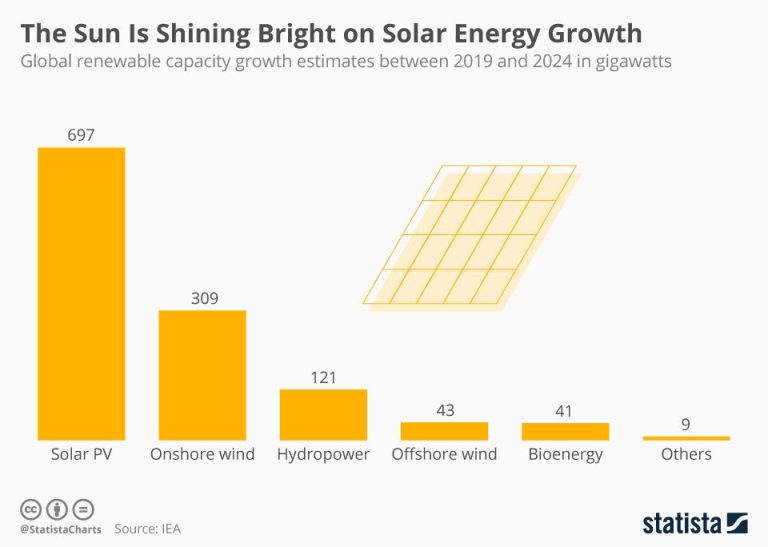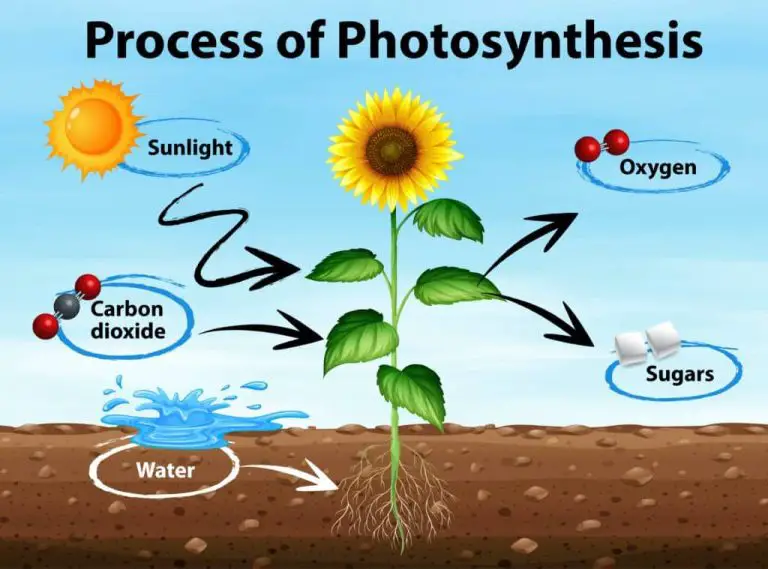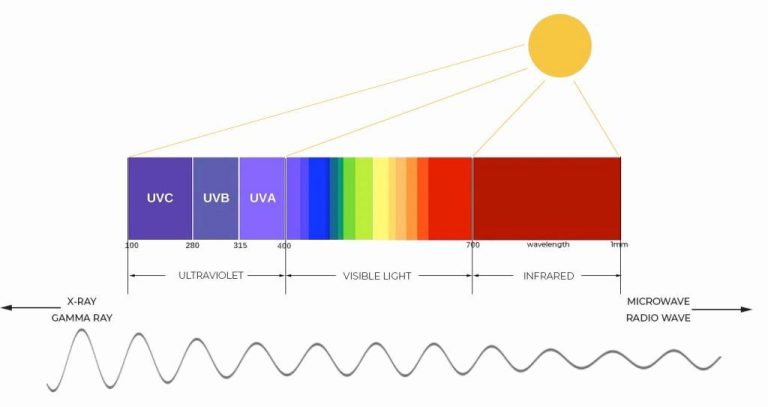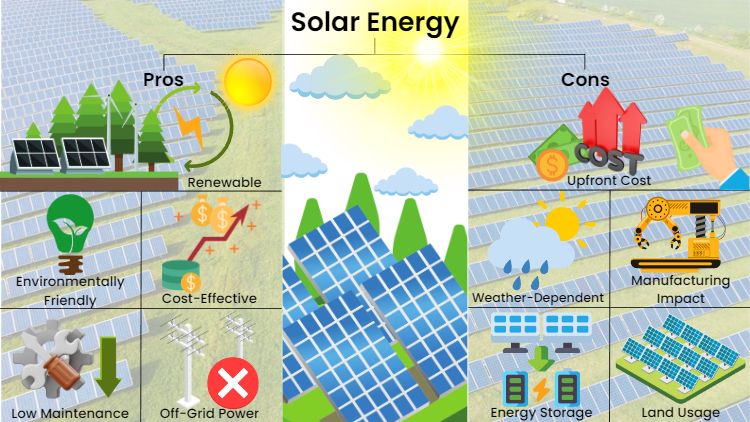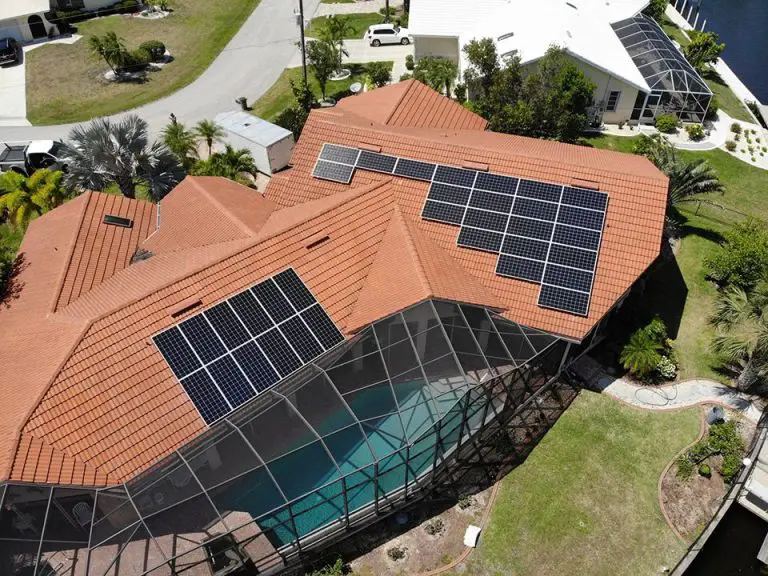Solar Panel Cleaning And Maintenance
Welcome to our blog post on solar panel cleaning and maintenance! As solar energy usage continues to rise, it is important for homeowners and businesses alike to properly maintain their solar panels in order to ensure optimum efficiency and longevity. While the initial investment of installing solar panels can be costly, regular upkeep can save you money in the long run by maximizing their output. In this post, we will discuss the importance of keeping your solar panels clean and well-maintained, as well as provide some tips on how to do so effectively. Whether you are a proud owner of a residential solar system or a commercial one, this post has valuable information that will help you get the most out of your investment. So let’s dive in!
Importance Of Regular Solar Panel Cleaning
Solar panel cleaning is an essential aspect of maintaining a solar energy system. Over time, solar panels inevitably become dirty due to environmental factors such as dust, dirt, leaves, bird droppings, and other debris. These contaminants block the sunlight from reaching the photovoltaic cells, causing a reduction in energy production and efficiency.
Furthermore, dirty solar panels also suffer from increased surface temperature due to the absorption of sunlight by the debris layers. This leads to thermal stress and premature aging of the panels, shortening their lifespan and causing breakdowns that require costly repairs or replacement.
In addition to improving energy output and extending the panel’s lifespan, regular cleaning can also have a positive impact on the environment. By maximizing energy production, solar panels can reduce the amount of greenhouse gases and other pollutants emitted into the atmosphere. This can help mitigate the harmful effects of climate change and promote a sustainable future.
To ensure optimal solar panel function, it is recommended to clean them at least twice a year, or more frequently if located in a dusty or heavily-polluted area. The most effective cleaning technique involves using a soft brush or sponge, non-abrasive soap, and deionized or distilled water. It is important to avoid harsh cleaning chemicals, abrasive materials, and high-pressure water or steam, as they can damage the panels and void manufacturer warranty.
Best Methods And Supplies For Cleaning Panels
When it comes to cleaning solar panels, there are several best practices and supplies that can ensure optimum results. It is vital to choose the right cleaning technique to avoid any damage to the panels. The best cleaning method involves a gentle approach using a soft brush or sponge, non-abrasive soap, and deionized or distilled water.
Firstly, it is essential to choose a mild and non-abrasive soap that can effectively clean off the accumulated dirt without damaging the panels. As a rule of thumb, any alkaline or acidic cleaning solution should be avoided, as it can cause harm to the anti-reflective coating and protective layers of the panels. You can either purchase a dedicated cleaning solution from a reliable supplier or opt for a DIY cleaning solution made from mild soap and distilled water.
Secondly, it is vital to choose a soft brush or sponge for cleaning the solar panels. Abrasive cleaning tools such as steel wool, metallic brushes, and hard scouring pads should be strictly avoided. Such tools can result in permanent scratches, weakening the panels and compromising their efficiency.
Thirdly, make sure to avoid using hard water or tap water to clean solar panels. Hard water contains mineral deposits that can leave a residue on the panel’s surface, affecting its performance. On the other hand, tap water contains impurities that might interfere with the functioning of the solar cells. It is therefore recommended to use deionized or distilled water to clean solar panels.
Fourthly, it is advisable to clean solar panels in the early morning or late evening when the panels are cooler. Cleaning the panels during the heat of the day can result in thermal shock, leading to the cracking or shattering of panels.
Lastly, it is important to clean solar panels at least twice a year, or more frequently if solar panels are in a dusty or heavily-polluted region. Regular cleaning can help maintain the performance and efficiency of the panels, maximizing the energy production and extending their lifespan.
Avoid Mistakes That Damage Panels
It is crucial to avoid mistakes that can cause significant damage to your solar panels. For instance, using abrasive materials or cleaning solutions with acidic or alkaline components can lead to scratches, cracks, and even complete failure of the panels. The anti-reflective coating and protective layers of solar panels are delicate and can be easily damaged if subjected to harsh cleaning methods. Therefore, it is highly recommended to use non-abrasive cleaning tools, such as soft sponges or brushes, and mild and non-abrasive cleaning solutions that are specifically formulated for solar panels.
Another mistake to avoid is using hard water or tap water to clean solar panels, as it contains mineral deposits and impurities that can leave deposits on the panel’s surface and interfere with its functionality, respectively. Deionized or distilled water is the best option for cleaning solar panels, as they are pure and do not contain any impurities that can affect the performance of the solar cells.
It is also vital to clean your solar panels at the right time of the day. Cleaning them during the heat of the day can cause thermal shock, leading to the cracking or shattering of panels. It is best to clean solar panels in the early morning or late evening when they are cooler and less prone to thermal stress.
Moreover, it is essential to clean your solar panels regularly to maintain their performance and efficiency. Dirty solar panels can significantly reduce the amount of energy they produce and shorten their lifespan. Ideally, solar panels should be cleaned at least twice a year, or more frequently in dusty or heavily-polluted regions.
Optimizing Panels Through Proper Angle And Placement
In addition to proper cleaning and maintenance, optimizing the angle and placement of solar panels is another crucial factor in maximizing their efficiency. The angle of solar panels affects how much sunlight they receive, and therefore, how much electricity they can produce. To achieve the optimal angle, solar panels should be positioned to face true south in the northern hemisphere, while those in the southern hemisphere should face true north. The angle of the panels should also be adjusted throughout the year to account for the changing positions of the sun. In the winter, the angle should be adjusted to allow more direct sunlight to hit the panels, while in the summer, the angle should be adjusted to prevent overheating.
The placement of solar panels is also important for optimum efficiency. Panels should be installed in areas that receive the most sunlight throughout the day, and without any obstructions that could block the sun’s rays. Buildings or trees that cast shadows on the panels can significantly reduce their output. Furthermore, the type of roof on which the panels are installed can also impact their efficiency. For instance, panels installed on a flat roof may require a mounting system that tilts the panels to the appropriate angle.
It is worth noting that installing solar panels at an optimal angle and placement can increase their efficiency by up to 30%. Therefore, it is essential to consult with a professional installer to determine the best possible placement and angle for your solar panels.
Using Energy Generated To Make Cleaning Easier
In addition to proper placement and cleaning, another way to maximize the efficiency of solar panels is to use the energy they generate to power the cleaning process. By using the energy produced by the panels to power the cleaning process, you are not only reducing your carbon footprint but also minimizing the risk of damaging the panels in the cleaning process.
There are various ways to use the energy generated from the solar panels to aid in cleaning. One option is to invest in an automated cleaning system that uses the panels’ energy to power the cleaning process. These systems are designed to use minimal water and cleaning agents to ensure that the panels are cleaned without damaging them.
Another option is to use a handheld pressure washer that can be charged by the solar panel’s energy. By using a handheld pressure washer, you can effectively remove any dirt or debris from the panels without the need for excessive amounts of water.
It’s worth noting that using the energy generated by the panels to power the cleaning process can be a cost-effective solution in the long run. By not having to rely on external sources of energy, you’re reducing your overall energy expenses which will ultimately impact your energy bills in a positive way.
Monitor System Performance And Spot Potential Issues
In addition to keeping your solar panels clean, it is essential to monitor the system’s performance regularly. This will enable you to spot any potential issues that may affect the panels’ efficiency and take corrective measures promptly. One way to monitor the performance of your solar panels is to check the panels’ output regularly. This can be done using monitoring software that is specific to your solar panel brand or by monitoring the inverter display. By doing this, you can notice any changes in energy production and take quick action if necessary.
Another critical aspect of monitoring your solar panel system’s performance is inspecting the wiring and connections. Over time, wire connections may loosen or corrode, leading to performance issues. It is essential to check the physical connections and wires regularly to ensure they are secure and free from damage.
It is worth mentioning that even the smallest issue with a solar panel system can significantly impact its output. That’s why it is crucial to have your system inspected by a professional periodically. These professionals can provide a comprehensive evaluation of your system and take corrective measures to fix any issues.
Regularly monitoring your solar panel system’s performance not only ensures it is running smoothly but also prevents costly repairs down the line. By identifying and fixing any issues quickly, you can maximize the efficiency and longevity of your solar panel system. This translates into a more significant return on investment and energy savings in the long run.
Prevent Debris Build Up That Blocks Sunlight
Another important aspect of solar panel maintenance is preventing the buildup of debris that can block sunlight. Over time, dirt, dust, pollen, leaves and other debris can accumulate on the solar panels and hinder their effectiveness. This can significantly reduce the amount of sunlight that reaches the solar cells and ultimately lower the energy output of your solar panel system. It is therefore essential to keep the surface of your solar panels clean to maintain their optimal performance.
There are several ways to prevent debris build up on solar panels. One of the most effective methods is to install a self-cleaning system that uses rainwater to wash away any dirt or dust that has accumulated on the panels. Some installations have been found to increase energy output by up to 30% through this method. Another method is to use a soft brush or squeegee to remove any debris that may be stuck on the panels. However, it’s important to use a gentle touch to avoid scratching or damaging the surface of the panels.
In addition to natural debris accumulation, bird droppings can pose a particular problem for solar panels. They contain uric acid, which can corrode the surface of the panels and reduce energy efficiency. Therefore, it’s crucial to regularly remove bird droppings from the panels to avoid this damage.
While it’s possible to clean solar panels yourself, it’s a time-consuming and potentially dangerous task. Walking on the panel surface to clean them can be risky, and accidental damage can occur. It is advisable to hire a professional maintenance service to clean your solar panels periodically, especially if you’re unsure about the proper cleaning technique. They have the necessary equipment and expertise to ensure your panels are cleaned safely and effectively without damaging them.
Inspect Connections And Bolts For Signs Of Wear
In addition to cleaning, inspecting the connections and bolts on the solar panel system is also an important part of maintenance. Over time, screws and bolts can loosen, leading to potential damage and even safety hazards. Regular inspection can help identify any loose connections or damaged components before they become more serious issues.
It is recommended to inspect the solar panel system annually for signs of wear and tear. This includes checking the bolts that hold the panels in place to ensure they are tightened securely. Any loose or damaged bolts should be replaced immediately to prevent damage to the panels or other components.
In addition to inspecting bolts and connections, it’s essential to check the wiring and electrical components of the solar panel system. Any damage or corrosion on the wiring can lead to a drop in efficiency or even cause an electrical fire. Therefore, it’s important to inspect the connector wires and junction boxes for signs of wear and corrosion.
If you notice any significant changes in the performance of your solar panel system, such as a sudden decrease in energy output, it’s important to have it inspected by a professional immediately. They can detect any potential problems and offer solutions to minimize the damage and maintain the efficiency of the solar panel system.
By including a thorough inspection of the connections and bolts in your solar panel maintenance routine, you can ensure that your system is running smoothly and safely, maximizing its lifespan and energy output.
Maintain Production With A Little Seasonal Tune-Up
Maintaining production throughout the year requires a little seasonal tune-up of your solar panel system. It is essential to invest some time and effort into regular maintenance to ensure that your system operates at optimal efficiency, regardless of the season. Here are some practical tips to help you maintain your solar panels throughout the year.
Firstly, it is imperative to keep your solar panels clean as dust, dirt, and debris can accumulate on the surface and hinder their ability to absorb sunlight. This will reduce the efficiency of your system, thereby decreasing the energy output. It is advisable to clean your solar panels at least twice a year, preferably in spring and autumn when there is less sunlight but more debris falling from trees.
Secondly, inspecting the connections, bolts, and wiring of your solar panel system annually can save you from potential damages and safety hazards. Regular inspection can help you identify any loose connections or damaged components before they become more serious issues. It is crucial to check the bolts that hold the panels in place to ensure they are tightened securely. Loose or damaged bolts can not only result in damage to the panels but also to other components in the long run.
Thirdly, checking the wiring and electrical components of your solar panel system is also vital. Any damage or corrosion on the wiring can lead to a drop in efficiency or even cause an electrical fire. Hence, it is essential to inspect the connector wires and junction boxes for signs of wear and corrosion. This further highlights the importance of inspecting the entire system regularly.
Lastly, scheduling maintenance with professionals, especially when you notice a significant drop in output, can ensure that your system is running smoothly and safely, maximizing its lifespan and energy output. They can efficiently detect any potential problems and offer solutions to minimize the damage and maintain the efficiency of the solar panel system.
Dyi Cleaning Or Hiring A Pro, Factors To Consider
When it comes to solar panel cleaning and maintenance, one of the key decisions that homeowners and businesses may face is whether to take a DIY approach or hire a professional service. While some may prefer to clean their solar panels themselves, others may prefer to pay for a professional service to handle the job. Here are some important factors to consider when making this decision.
One of the primary factors to consider is the safety aspect. While cleaning solar panels may seem like a simple task, it can actually be quite dangerous to do so without proper training and equipment. Climbing up onto a roof and working with electricity can be hazardous, especially for those who are not experienced in doing so. Hiring a professional service can ensure that the job is done safely, minimizing the risk of injury.
Another factor to consider is the equipment and products required. Solar panels are delicate and require specific cleaning products and equipment to avoid damage. Professionals have access to specialized tools and cleaning agents that are designed to effectively and safely clean solar panels. By contrast, DIY cleaning may require the purchase of additional equipment and detergents, which can add to the overall cost and complexity of the process.
The level of expertise required is also an important consideration. Professional solar panel cleaning services have experience in handling a variety of systems and are well-equipped to identify any potential issues or damage. DIY cleaning, on the other hand, may require a level of technical knowledge and experience that not everyone has. Trying to clean the panels yourself without the necessary expertise could result in damage to the panels or system, which can be time-consuming and costly to repair.
Finally, there is the issue of time and convenience. Cleaning solar panels can be a time-consuming process, especially for those who are not experienced. Hiring a professional service can save time and hassle, allowing you to focus on other tasks or activities. Additionally, scheduling regular professional maintenance can ensure that your system is always functioning optimally, saving you money and maximizing the lifespan of your panels.
Extend Solar Panel Lifespan With Routine Care Tasks
In addition to ensuring that your solar panels are regularly cleaned and maintained by professionals, there are several routine care tasks that will extend the lifespan of your solar energy system. One of the simplest yet most effective things you can do is to regularly monitor your system’s output and performance. This can be done through the use of an online monitoring platform, which can provide real-time data on your panels’ efficiency and energy production. If you notice any significant drops in output, it may be a sign that your panels need to be cleaned or that there is an issue with your system that requires attention.
Regular inspections of your solar panels are also important for maintaining their longevity. Inspecting your panels for any signs of damage, including cracks, scratches, or discoloration, can help you catch any problems early on and prevent them from becoming larger issues. Regular inspections can also help you identify any debris or other obstructions that may be blocking sunlight from reaching your panels, such as overhanging tree branches or leaves.
Another important routine care task is to ensure that your solar panels are properly installed and secured. Improper installation can cause panels to become loose or damaged, which can impact their efficiency and cause safety concerns. Making sure that your panels are installed according to manufacturer specifications and guidelines, using high-quality mounting hardware and fasteners, can help to prevent these issues and extend the lifespan of your system.
It is also important to protect your solar panels from harsh weather conditions, such as hail, heavy winds, or extreme temperatures. While solar panels are designed to withstand a variety of weather conditions, they can still be susceptible to damage if exposed to severe weather events. Using durable and weather-resistant materials during installation, such as corrosion-resistant aluminum frames and tempered glass panels, can help to protect your panels and ensure their longevity.
Finally, regular maintenance and cleaning of other components of your solar energy system, such as inverters, cables, and batteries, can also help to extend the lifespan of your panels. Routine maintenance tasks, such as checking for loose connections, testing battery voltage, and cleaning dust or debris from cables, can help to keep your system performing optimally for years to come.
By following these routine care tasks and scheduling regular professional maintenance, you can ensure that your solar panels are operating efficiently and effectively, and that you are getting the most out of your investment. With proper care and attention, your solar energy system can provide you with clean and renewable energy for many years to come.
Frequently Asked Maintenance Questions Answered
Frequently Asked Maintenance Questions Answered:
1. How often should I clean my solar panels?
Solar panels should be cleaned at least twice a year, but the frequency may vary depending on the location and environmental factors. If you live in an area with heavy pollen, dust or smog, cleaning your panels more often may be necessary. Additionally, after significant weather events such as intense rain or dust storms, it is also recommended to clean your solar panels to ensure optimal performance.
2. Do I need to hire a professional to clean my solar panels?
While it is possible to clean your solar panels yourself, it is recommended to hire a professional company to do so. They have the expertise and equipment necessary to efficiently and safely clean your panels without risking any damage. Additionally, professional cleaners will be able to identify any potential issues with your system during the cleaning process.
3. What should I use to clean my solar panels?
It is important to use non-abrasive materials when cleaning solar panels to avoid scratches or damage. It is also important to avoid using harsh chemicals such as bleach or ammonia as they may damage the panels. Instead, a simple mixture of water and a mild, non-abrasive soap can be used, or there are many specialized cleaning products made specifically for solar panels.
4. What should I do if I notice a drop in energy output from my solar panels?
If you notice a significant reduction in energy output from your solar panels, it is important to contact a professional to inspect and diagnose the issue. It may be a sign that your panels need to be cleaned or that there is an issue with your system that requires attention. Ignoring a decrease in energy output can lead to even larger issues and reduced lifespan of your solar energy system.
5. How do I prevent damage to my solar panels during extreme weather events?
Solar panels are designed to withstand a variety of weather conditions but can still be susceptible to damage. To prevent damage during extreme weather events such as hail or heavy winds, using durable and weather-resistant materials during installation, such as corrosion-resistant aluminum frames and tempered glass panels, can help to protect your panels and ensure their longevity. Additionally, ensuring that your panels are installed securely can prevent damage caused by strong winds or flying debris.
Conclusion
In conclusion, the benefits of regular solar panel cleaning cannot be overstated. Not only does it help maximize energy production and extend the lifespan of your panels, but it also ensures the safety and effectiveness of your solar system. By using the best methods and supplies for cleaning, avoiding common mistakes, and optimizing panel placement and angle, you can greatly improve the performance of your panels. Additionally, utilizing energy generated by your system to aid in the cleaning process is a smart way to make maintenance easier and more sustainable. Remember to regularly monitor your system’s performance, inspect connections and bolts for signs of wear, and prevent debris build-up that can block sunlight. With just a little seasonal tune-up and attention to routine care tasks, you can maintain optimal production from your solar panels year after year. And when it comes to DIY versus hiring a professional for cleaning or maintenance tasks, there are important factors to consider such as safety, experience, and cost-effectiveness. But by taking these maintenance tasks seriously and keeping up with routine care, you will not only save money in the long run but also help contribute to a cleaner and more sustainable environment. So don’t overlook the importance of regular solar panel cleaning – it’s a crucial part of maximizing the potential of your solar system! And if you still have questions about maintenance or other related topics, check out our frequently asked questions section for more information. Thank you for reading our blog post on regular solar panel cleaning – we hope it helps you get the most out of your solar investment!

